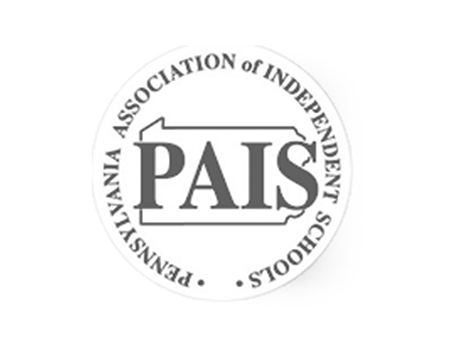Affording River Valley Waldorf School
River Valley Waldorf School tuition is one of the most competitive in the region. In order to make a River Valley Waldorf education even more accessible, we offer financial aid as well as monthly payment plans. Approximately 50% of River Valley families receive financial aid. Financial aid is available for families with demonstrated financial need, as determined by the information you provide the School and Student Services (SSS), including a copy of your most recent 1040 Federal Tax Return.
Understandably, many families wish to know what their potential aid package might look like before filling out their SSS application. Because the process is so thorough and depends on many financial factors that go beyond simple income and household size, we cannot predict what your family’s financial aid package will look like before processing your application.
In order to give potential applicants an idea of the range of possible financial aid awards, we are sharing three sample packages that were awarded for the 2023-24 school year.
Diversity & Accessibility
At River Valley Waldorf, we believe diversity makes us better, smarter, and stronger. River Valley Waldorf School is committed to providing an accessible and affordable Waldorf education to its students. Financial assistance is granted on the basis of need, and requests for financial aid have no impact on admission decisions.
Our Financial Aid Committee considers each family’s ability to pay alongside the availability of financial aid funds from River Valley Waldorf School.
Financial Aid Process
The Financial Aid application for the 2026/27 school year is currently open as of 12/1/25. The deadline for new and returning students to apply for financial aid is February 15, 2026. It may happen that more students apply for financial aid than we are able to assist. Priority for financial aid is given to returning families, but after the February 15 deadline, newly enrolled families will be awarded available assistance.
Financial aid is available to eligible students who attend 5 days a week in Early Childhood and in grades 1 through 8.
Step 1
Go to https://app.clarityapp.com/sign-up
Step 2
Begin your application and add River Valley Waldorf School to your student applicant entry. River Valley Waldorf School’s school code is 1972. You can save your application and log out at any time and return later to complete it.
Step 3
Enter your financial information, review your application, and pay the $65 Clarity application fee.
Step 4
US taxpayers: Complete the Clarity Enhanced Tax Verification (ETV) process to release your W2 and personal tax return transcripts from the IRS. You’ll be asked to authorize the sharing of your tax transcripts and verify your identity. This is a one-time security measure required by the IRS to protect against identity theft and the compromise of personal information. Only those filing US taxes will be prompted to complete this step. Clarity offers two options for enhanced tax verification process: “Clarity” and “IRS”. Please reference the Tax Verification Guide to preview the steps of this process.
Step 5
Submit your Clarity application and follow the link to return to your dashboard. Non-U.S. tax filers may be prompted to upload income verification and other necessary documentation. Keep in mind that at a later date, you may be prompted by the school via Clarity to upload additional documentation as needed.
Resources
Clarity Application Quick Reference Guide (one page walkthrough/tips)
If you have any questions, please reach out to admissions@rivervalleyschool.org or (610) 982-5606.

2026-2027 Tuition
Early Childhood
- An application fee of $50.00 may apply
- EC Commitment Fee (non-refundable) – $500
- Children 5-years old by June 1st must be enrolled in five full or five half days
Half Day: 8:30 am–12:30 pm
3-Day – $8,206
5-Day – $13,636
Full-Day: 8:30 am–3:15 pm
3-Day – $11,240
5-Day – $15,865
Grade School
- An application fee of $50.00 may apply
- Grades Commitment Fee (non-refundable) – $660
Grades 1-5 – $18,118
Grades 6-8 – $18,349
Payment Plans
Our Payment Plans allow you the flexibility to pay your tuition in a lump sum, or to spread it across three periodic or ten monthly payments. All families are eligible to enroll in a payment plan. The full Commitment Materials fee is still due at the time of enrollment.
Additional Fees
Tuition Refund Plan Participation in the Tuition Refund Plan (TRP) is required for every student regardless of the payment plan selected. The Tuition Refund Plan premium of $350 will be due with the first tuition payment.
Tuition payments made by credit card are subject to a handling fee through the tuition management system. There is a $30 fee for a returned payment. Any exceptions to the regular payment plans or handling of overdue balances must be put in writing and signed by the parent(s)/guardian(s) and the business manager. Reports will not be released from the school on accounts with an overdue balance.
Instrument Commitment: Beginning in 3rd grade as part of the curriculum, children are expected to take either group or individual instrumental music lessons, which may or may not be available onsite at the school. Families with students in grades 3-8 should prepare to budget for instrument rental and lessons.
Field Trip Fees: When overnight trips are scheduled by the class teacher, families are asked to pay 25% of the total per pupil cost of the trip. These trips may include but are not limited to the 3rd/4th grade Farm Trip, 6th grade Camp Onas Trip, and the 8th Grade Capstone Trip. Payment plans for these field trip fees are available by request.
Discounts
Sibling Discount The school offers a sibling discount of 7.5% off the total tuition for the second and 15% for the third child and 30% for the fourth and 50% each subsequent child enrolled at the school. You will be charged full payment for the highest tuition rate and receive the discount on the lesser tuition(s). No discounts are applied to fees.

© River Valley Waldorf School Privacy Policy





